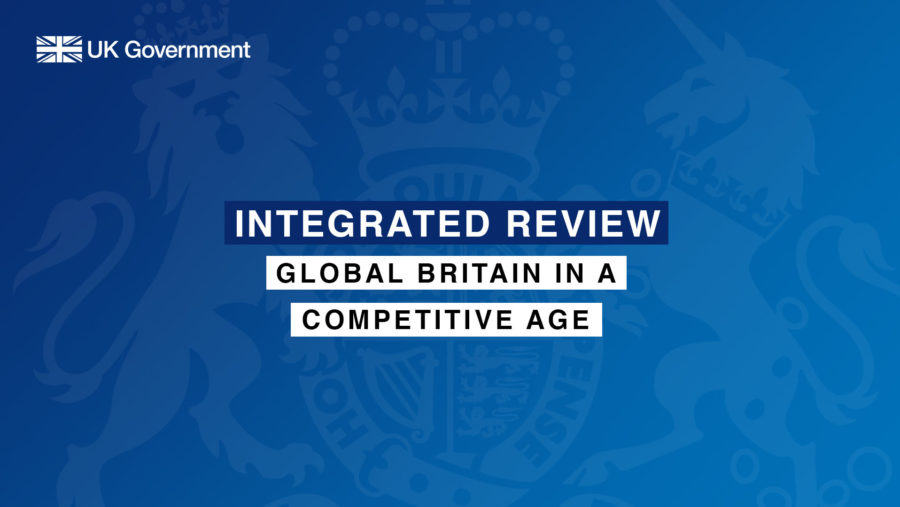19th March 2021 Geneva, Switzerland
The Integrated Review and Disarmament

The Government’s Integrated Review (IR) of Security, Defence, Development and Foreign Policy was published on 16 March. Entitled ‘Global Britain in a Competitive Age’, it sets out the Government’s assessment of the geopolitical context and its strategic framework that will guide the UK’s actions on the world stage, as a European country with global interests and connections, committed to multilateralism.
The IR also contains the official statement of the UK’s nuclear weapons policy. The fundamentals of that policy remain constant, as they have since the late 1990s. Our nuclear deterrent’s task is to deter the most extreme threats to the security of the UK and our Allies, to preserve peace, prevent coercion and deter aggression. The weapons themselves sit on a single delivery system (submarines), de-alerted and de-targeted. The stockpile is kept at the minimum level possible to credibly deter those threats, and is the smallest belonging to any of the five recognised nuclear weapon states.
None of that has changed. What has, is the minimum stockpile level at which the deterrent is credible. The previous ceiling was 225 warheads, though we had intended to reduce it to 180 by the mid-2020s. Instead, given the changing security environment, including technological and doctrinal developments elsewhere, we are raising that ceiling by about 15%, to 260. (It’s important to emphasise that this is a ceiling, not a target, and it is not our actual stockpile.) We will also no longer set public ceilings on the element of the stockpile that is operational and deployed, and have slightly enlarged the circumstances in which we might review our negative security assurances to non-nuclear weapons states in the future (though the assurances themselves remain the same as before). These changes are fully compatible with our obligations under the NPT.
What also remains constant is our unequivocal commitment to the Non-Proliferation Treaty, and the goal of a world without nuclear weapons. These aspects of our policy get more space in the IR than in its 2015 and 2010 predecessors. While our support (which is much more than just rhetorical) for the Comprehensive Test Ban Treaty regime, a Fissile Material Cut-off Treaty, and technical efforts to improve nuclear disarmament verification is consistent, new elements include efforts to reduce strategic risks, promote dialogue and understanding, and to use the language of ‘responsibilities’. More on that as we approach the Nuclear Non-Proliferation Treaty Review Conference.
Beyond nuclear, there’s a large section in the IR on strengthening global arms control, disarmament and non-proliferation. That signals our continued determination to uphold the norms against chemical and biological weapons, and tackle the very real threats of proliferation to state and non-state actors alike. Unsurprisingly, global health is front and centre of the IR, and our work on Biological Weapons Convention is highly relevant to our wider focus on biosecurity.
The other exciting element of the IR for us in the commitment to extend the open international order to the future frontiers of outer space, cyberspace and emerging technologies. Our work to promote a free, open, peaceful and secure cyberspace had a boost last week with the Open Ended Working Group’s adoption of a consensus report, and regular readers of this blog will know about the UK’s initiative on reducing space threats through norms, rules and principles of responsible behaviours. The IR pledges to continue and intensify that work, and that we will balance the opportunities of new technologies with controls, both domestically and internationally.
That’s just a small snapshot of a very comprehensive document, which is worth reading in its entirety. But I hope it gives you a sense of our priorities over the coming months and years, and the importance disarmament and non-proliferation plays in the Government’s view of the UK’s role in the world.